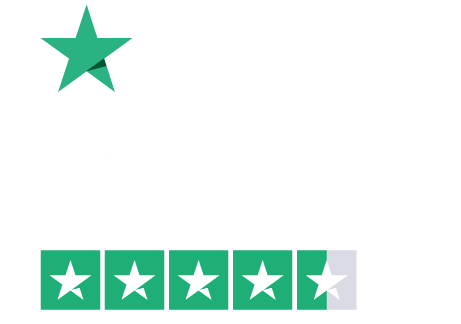
Thinking of Expanding to Dubai? Top Challenges UK Businesses Face When Setting Up a Mainland Company in the UAE
Creating a business for expansion to Dubai by UK entrepreneurs is an attractive proposition due to Dubai’s thriving economy as well as its strategic position in the region. UK Foreign Direct Investment (FDI) into the UAE soared to around £5 billion in 2020, the country is still a popular and lucrative place to do business. As a UK business establishing in Dubai, you will find a thriving market – the UAE is the UK’s largest export market in the Middle East and Dubai is a gateway to the region due to the infrastructure, it’s world class infrastructure and an extensive expatriate British community. The emirates are competing to attract business with low taxes (corporate tax on profits over AED 375,000 or approximately US$100,000 is 9% and no personal income tax) and business incentives for foreign companies.
However, setting up a business in Dubai from the UK involves navigating a complex regulatory landscape. Success requires adapting to local laws, culture, and costs. Below we explore the main hurdles – from UAE mainland vs free zone for businesses and legal requirements, to cultural differences, visa and sponsor rules, and financing – that UK companies must tackle when starting a company in Dubai for UK businesses. We also outline the company setup process UAE, so you know what to expect step-by-step.

Mainland vs Free Zone: Choosing the Right Location
One of the first decisions for any foreign investor is choosing between a mainland company (onshore) and a free zone entity. This choice has major implications for ownership, licensing, and operations. Setting up a mainland company in Dubai grants maximum flexibility: mainland firms can trade anywhere in the UAE (and with the government) and can open branches across the Emirates. By contrast, starting a company in Dubai free zone allows 100% foreign ownership and simplified processes, but restricts you to doing business within the zone or export markets.
Mainland:
- In practice, a Dubai mainland company formation typically means registering with the Department of Economy (formerly DED) of the chosen emirate. A mainland license lets you sell locally and bid on government contracts – a big advantage, since mainland companies in Dubai can enter lucrative public tenders.
- Until recently, mainland entities required a UAE national partner with at least a 51% share for many activities. (Recent reforms now allow up to 100% foreign ownership in most mainland sectors, but the old rules still apply for certain businesses.)
- In short, company formation in Dubai mainland is more complex in terms of ownership: you must appoint a local sponsor or service agent for your license and meet any sector-specific capital or qualification rules.
Free Zones:
- Free zones (of which there are over 40 in the UAE) each cater to specific industries and offer perks like corporate tax holidays and full repatriation of profit.
- A UK founder setting up a mainland company in Dubai must weigh these trade-offs. Mainland setup gives full access to the UAE market but involves more local regulation. A free zone setup in Dubai may be simpler (100% ownership and zero tax), but limits your mainland reach unless you establish additional branches or distributorships.
- An experienced advisor like Lanop Business and Tax Advisors can help you decide which path fits your business model.

Key Challenges for UK Businesses in Dubai
UK firms expanding to Dubai face many practical and regulatory challenges. Challenges for UK businesses in Dubai often boil down to understanding and complying with local laws and customs while managing costs and partnerships. It’s a very different environment from the UK’s regulated market, so expert guidance is invaluable. Below are some of the most common hurdles encountered when setting up a company in Dubai mainland:
Regulatory Complexity & Licensing Requirements:
Dubai’s business rules differ greatly from the UK. You must obtain a commercial license for your exact activity, and approvals can vary by emirate and sector. For instance, if you are starting a company in Dubai for UK businesses in construction, you’ll need not only a DED trade license but also special permits. In all cases, Dubai company registration requirements include securing a trade name, getting initial approval, drafting a Memorandum of Association (or local service agent agreement), and leasing a physical office. Missing any step can delay your license.
Ownership and Local Partner Rules:
Traditionally, an LLC (Limited Liability Company) on the Dubai mainland required a UAE national sponsor owning 51%. Choosing the wrong local partner can cause ownership disputes and risk your investment. Although recent laws now permit 100% foreign ownership in many sectors, the sponsor mechanism is still needed for certain activities. UK businesses must carefully understand these rules and structure shareholding accordingly. Specialists often advise setting up a civil company or professional license if you can be 100% owner (e.g., as a consultant or sole establishment).
Visa and Workforce Constraints:
Any foreign-owned business in the UAE must sponsor visas for itself and its employees. Obtaining employment visas and work permits can be time-consuming. Visa approvals depend on your office space (each visa requires a set floor area) and license.
Dubai business regulations for UK companies also require compliance with the Ministry of Human Resources’ rules. UK investors often find that “hiring local personnel can be difficult as many criteria must be followed” for each expatriate visa. Furthermore, Dubai’s Wage Protection System means payroll must be documented strictly, adding administrative burden.
Cultural and Language Differences:
Although English is widely spoken, Arabic remains the UAE’s official language. Crucial business contracts, employment records and government communications must often be in Arabic. This can surprise UK founders. Business etiquette is also more formal: meetings may start late or off-schedule, and social customs (gender norms, gestures, dress codes) differ from Europe. In short, business setup challenges Dubai UAE include adjusting to local communication styles and working weeks (Sunday–Thursday, with Friday off).
Banking and Financial Hurdles:
Opening a corporate bank account in the UAE can take months without local assistance. UK companies often underestimate this delay, but banks are stringent about due diligence. Certain sectors (like fintech or trading) face extra scrutiny. On the plus side, Dubai has a robust financial system, but it pays to have a local financial advisor for your business like Lanop business and Tax Advisors. Managing cash flow is also critical, consultants recommend keeping sufficient working capital since getting credit in UAE requires building local banking relationships
Tax and Compliance:
The UAE’s new 9% corporate tax (effective on profits above AED 375,000) and 5% VAT mean UK firms must adjust their financial planning. Although these rates are low, compliance is mandatory. Failure to register for VAT can incur hefty fines. UK companies must ensure they file accurate returns under FTA rules. Importantly, many UAE free zones offer 0% tax if specific conditions are met, so if you are considering free zone versus mainland, note that tax benefits may sway your choice. Also, there are no personal income taxes, but there is no UK-style pension either – meaning founders need an exit/retirement strategy, since leaving the business also revokes residency.
Operating Costs:
Dubai is tax-efficient, but not necessarily cheap. Office rent, utilities, sponsor fees and visa costs add up. According to UK advisers, you must budget for the cost of setting up a business in Dubai – commercial rent, license fees, and salaries – to ensure your venture is viable. Lifestyle and networking expenses can also be high because Dubai is not necessarily cheap. Networking, office space, and lifestyle costs must be factored into financial planning. Failure to account for these can stall your expansion.
Market Competition and Adaptation:
Dubai has a vibrant startup scene, but also intense competition. UK founders need deep market research to tailor their offering to local preferences. Companies must understand consumer behavior and market trends in the UAE. It may not be enough to copy your UK model – you may have to adapt pricing, branding or even product features to suit the region. Conversely, Dubai’s many accelerator programs and high-growth investors can also boost your scaling if you fit into a lucrative sector (like tech or tourism).

Steps in the Dubai Company Setup Process (Mainland)
To set up a company in Dubai mainland, UK entrepreneurs must follow a multi-step process overseen by the Department of Economy (DED) in the chosen emirate. After these steps, you can open a corporate bank account and begin hiring staff. Throughout this process, it’s crucial to work with local specialists or PRO agents who can navigate Dubai’s bureaucracy and ensure nothing is missed. These steps include:
1- Decide on Business Activity and Legal Form:
First, select your business activity (e.g., trading, consulting, construction) and legal structure e.g., LLC, civil company, branch). Some activities (like construction or education) have extra requirements. Choose the form that fits your needs: for example, an LLC is common for most industries, whereas a sole establishment or branch might suit smaller ventures. (An LLC usually requires a UAE sponsor).
2- Choose a Company Name:
Submit a unique trade name to the DED. It must comply with UAE naming rules (no profanity or religious references).
3- Obtain Initial Approval:
Apply for initial approval (No Objection Certificate) from DED. This confirms the government has no objection to your business and allows you to proceed with paperwork.
4- Draft Legal Documents:
Prepare the Memorandum of Association (MOA) if forming an LLC or partnership, or a Local Service Agent (LSA) agreement for professional companies. The MOA spells out ownership and management terms. (Public/private joint-stock companies require additional documents.)
5- Lease an Office and Register Ejari:
Secure a physical office or commercial space, as a mainland license must link to a premises. In Dubai, the tenancy contract must be registered on Ejari (the official tenancy portal). Note that different emirates have minimum space requirements per visa.
6- Get Additional Approvals (if needed):
Some fields need extra permissions. For example, a construction firm must obtain a Municipality building permit (the G+1 permit) and environmental/civil work clearances. Any business involving healthcare, education, etc., may need ministry approval. Check early whether your activity is regulated by another authority.
7- Submit Final Documents:
Gather all required paperwork and submit it to the DED for final review. This typically includes copies of the partners’ passports, the Ejari lease agreement, initial approval certificate, any external approvals (as above), the MOA or LSA, and the completed trade license application.
8- Pay Fees and Receive License:
Once approved, pay the government fees (license, registration, name clearance, etc.). After payment, you’ll receive your trade license or commercial license. This legalizes your company.
9- Register with the Chamber of Commerce:
Finally, register your entity with the local Chamber of Commerce (required for all businesses) to complete the setup.
Sector-Specific and Cost Considerations
Different industries have unique rules. For instance, entrepreneurs wondering “how to start a cleaning company in Dubai” must know that cleaning services fall under General Services or Cleaning Services licenses. In addition to the standard business setup steps, you’ll need health/safety permits and approvals. Likewise, “how to start a construction company in Dubai” usually means registering on the mainland (construction activity is not allowed in most free zones) and obtaining specialized permits like the municipality’s building (G+1) permit and related environmental licenses. These extra approvals must be factored into your timeline and budget.
Two-Pronged Approach:
On the question of how to start a company in Dubai, UK founders must align their plans with local norms. Dozens of UK companies now take a two-pronged approach: maintaining a UK base for credibility and retaining high standards, while using a UAE mainland or free zone entity to tap Gulf markets.
Cost Considerations:
Whatever sector you enter, the cost of setting up a business in Dubai can be significant. You should budget for office rent, visa fees, sponsor commissions and salaries. Government fees vary by emirate and license type; a basic mainland trade license might start at a few thousand dirhams, but comprehensive packages (including office and visas) often run higher. Don’t forget ongoing costs like license renewals and local audit requirements. As a rule of thumb, plan for a higher initial investment than you might expect and consult advisers for a detailed quote.
Why UK Businesses are Expanding to Dubai
Despite the challenges, many UK firms find the move rewarding. Dubai actively courts foreign entrepreneurs, offering substantial incentives and a liberal trade environment. The city’s startup ecosystem is booming from tech incubators to fintech-friendly free zones, the networks available are unparalleled. UK founders note that business culture in Dubai can be highly collaborative and that government programs are very supportive of scaling companies.
Moreover, the legal framework can feel reassuring; for example, several Dubai free zones operate under English common law principles, giving UK businesses regulatory familiarity. And English is the lingua franca of commerce in Dubai, easing communication (though remember that Arabic is required on official documents).
Economic data also underscore the opportunities. The UAE’s economy is diverse and growing (over 70% non-oil), and Dubai is a gateway to the Middle East, Africa, and Asia. Corporate tax is low at 9% and there are extensive tax treaties in place. For many UK companies – especially those in finance, tourism, logistics or tech – setting up a company in Dubai mainland can accelerate growth into new markets.
However, experts stress proceeding with caution. Missteps (like choosing the wrong entity or undervaluing local customs) can be costly. That’s why having knowledgeable advisors like Lanop Business and tax advisors is crucial.

Lanop Business and Tax Advisors Services
Lanop Business and Tax Advisors specialize in guiding UK companies through exactly these kinds of expansions. Our goal is to make the setup journey smooth and transparent. We act as your local point of contact, bridging the gap between UK business practices and Dubai’s regulatory environment. Our team offers end-to-end support for mainland company formation in Dubai and the UAE, including:
1- Market Entry Strategy:
We help you choose the right legal structure (LLC, branch, etc.) and location (mainland vs free zone) based on your business goals. If you’re unsure about questions like “how to start a company in Dubai” or “start a company in Dubai free zone,” Lanop can explain the pros and cons and advise on the best path.
2- Company Registration & Licensing:
Our advisors handle the paperwork with the Department of Economy and other authorities. We prepare MOAs and service agent agreements, register trade names, secure initial approvals and manage all Dubai company registration requirements. We also arrange for your Ejari office lease and submit your license application, taking the guesswork out of the process.
3- Local Compliance & PRO Services:
Lanop Business and Tax Advisors arrange local sponsorship (if needed) and navigates visa processes for you and your staff. We ensure your HR policies; employment contracts and payroll comply with UAE labor laws. This covers visa issuance, renewal, and adherence to systems like the Wage Protection System (WPS), so you can focus on growing your business.
4- Tax, Accounting and Audit:
As tax advisors, we keep you compliant with UAE tax and corporate regulations. We register you with the Federal Tax Authority, handle VAT filings, advise on corporate tax planning, and prepare your financial statements for audit. For UK companies, we also offer cross-border tax consulting to optimize your global tax position under UAE-UK treaties.
5- Ongoing Support:
After launch, Lanop remains your UAE partner. We can provide bookkeeping, accounting, and CFO services, manage renewals of licenses and visas, and keep you informed of any regulatory changes (for example, updates to foreign ownership rules or labour quotas).

Conclusion:
Expanding to Dubai presents exciting growth opportunities for UK businesses, but also significant challenges. By understanding the UAE mainland vs free zone for businesses, the detailed company setup process UAE, and local business setup challenges outlined above, you can make informed decisions and avoid costly missteps. Partnering with experts can dramatically reduce risks and speed up your launch.
Lanop Business and Tax Advisors is ready to be your strategic partner in the UAE. From initial consultation through incorporation and beyond, we offer the local expertise you need to thrive. Whether you’re wondering how to start a cleaning company in Dubai or seeking guidance on Dubai mainland company formation, we can guide you every step of the way. Contact Lanop today to explore how we can help your UK business successfully enter the Dubai market.
FAQs
How to Start a Company in Dubai
The following are steps to startup main land company in Dubai.
- Define the Role of Your Business: Know what you are into (trading, consulting, manufacturing), this should help you decide what type of license you need.
- Select a Legal Form: Choose a professional company including LLC, CC, Establishment depending on the requirements of your business.
- Register with the Dubai Department of Economic Development (DED): You will need to apply to the DED in Dubai and provide the required documents, including passport copies and an Emirates ID or proof of address.
- Find a local partner or service agent: For some business types, a local sponsor or a service agent can be needed from a UAE national.
- Get Further Approvals: There might also be additional approvals required by other government entities, according to the nature of your business.
- Rent an Office: Offices are essential for mainland companies; register the office lease in Ejari.
- Apply for Visas: Especially when it comes to applying for a Visa [for you and your employees].
- Open a business bank account: Select a bank and present the necessary documents to open a business account.
How Long Does It Take to Set Up a Mainland Company in Dubai?
The time it takes to establish a mainland company in Dubai will largely depend on several factors:
- Business Operation: Some operations need different approvals that might mean the set-up time is a bit longer.
- Documentation: Filing all the information in an appropriate manner and on time could help speed up the process.
- Office Space: Finding and signing an office space lease is a critical factor that can affect the timelines.
It will normally take between 2 and 4 weeks. But it’s best to speak with a local business setup advisor to come up with a more precise figure for your situation.
Can UK Businesses Fully Own a Mainland Company in Dubai?
Yes, the recent legal reforms of the UAE often permit 100% foreign ownership in onshore companies in most industries. Until now, a local would have to own at least 51% of a firm. Now, British entrepreneurs are generally free to set up and have full ownership of their mainland businesses without a local partner. Still, there may be requirements for specific sectors that are regulated, so you will need to look at the regulations applicable to the business you plan to do.
Are There Any Tax Benefits for UK Businesses Setting Up in Dubai?
Here are some of the tax benefits the UK businesses get to enjoy from operating in Dubai:
- Zero Personal Tax: No personal income tax is levied.
- 9% Corporate Tax: Implemented by 2023, for profits over AED 375,000. The rate is low considering the corporate rates for the UK.
- No CGT: No capital gains tax on asset sales.
- 5% VAT: Imposed on most goods and services, this is low by regional standards.
These tax advantages are a big draw for UK companies considering how to minimize their tax exposure in Dubai.
What Industries in Dubai Are Particularly Good for UK Businesses?
Dubai’s multi-sector economic backdrop which creates opportunities in different industries, such as:
- Technology & Innovation: Thanks to projects like Smart Dubai, there’s a boom in tech solutions.
- Education and training: The education focus of the UAE aligns with solutions UK educational provider and training own providers can offer.
- Alternative Energy: With its sustainability focus, Dubai offers opportunities in solar and renewable energy projects.
- Banking & Finance: The existence of the Dubai International Financial Centre (DIFC) provides a home for banking & finance companies.
- Health & Pharmaceuticals: The sector is in demand thanks to an ageing population and aging needs.
What Support Is Available for UK Businesses Expanding to Dubai?
UK companies have access to the following support systems when they’re setting up in Dubai:
- Department for Business and Trade (DBT): Providing support to UK companies looking to trade and invest, through impartial, practical advice and services, in the UAE.
- Dubai Chambers: Offering business networking, market intelligence, and business advocacy for firms.
- Other Offline Sector: Local consultants and law firms may be engaged to advise on company setup, government compliance (including market entry strategy).
Using these resources can help make the transition to, and establishment in, the Dubai market smoother and more successful.
Aurangzaib Chawla is an international tax and business advisor with offices in the UK, UAE, Belgium, KSA, and Pakistan. As Managing Partner at Lanop Business & Tax Advisors, he helps entrepreneurs and investors expand globally with proactive structuring, compliance, and long-term tax efficiency.

let’s talk through your options, no jargon, no pressure.




